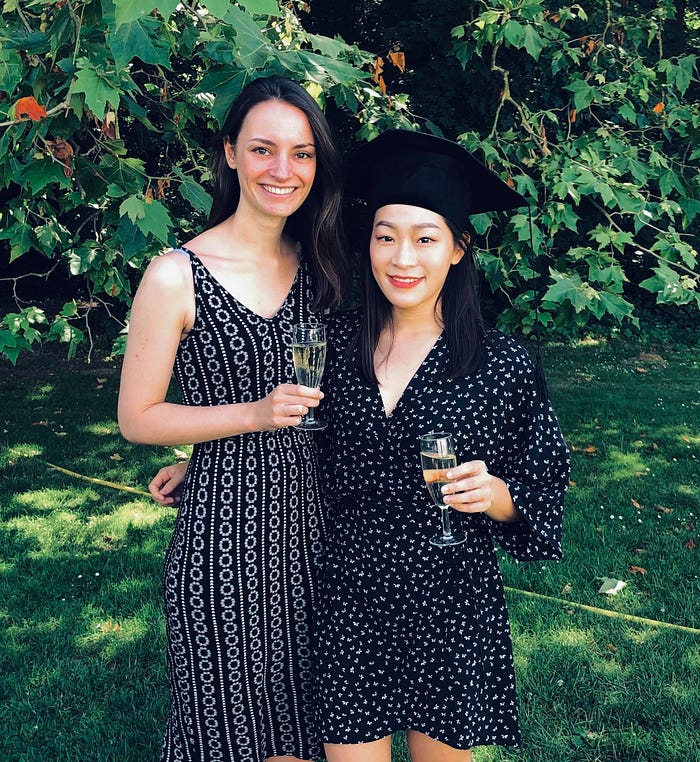“This could be the last democratic election in Taiwan”
Critical elections and a generational divide mobilize the Taiwanese community of Belgium
Lee Yu-Hsien (25) is a Taiwanese woman who has been studying in Belgium for about two years, where she acquired a master’s degree in adapted physical activity in rehabilitation. Currently she is spending some time back home in Taipei, where the population is being bombarded nonstop by political advertisements for the upcoming presidential elections of January 11, 2020. Taking a short break between studies is not the only reason why she’s home. Casting her vote in the elections is a critical priority to her and many fellow Taiwanese students in Belgium.
There is a jolt of political anxiety flowing through the Belgian-Taiwanese community regarding these elections. “Many of us feel like it might be the last democratic election in Taiwan, depending on the results,” Yu-Hsien states. “When you look at what’s happening in Hong Kong, it scares us. We feel China’s grip on Taiwan tightening as well,” she says. Many Taiwanese students in Belgium are collectively planning to fly back home to vote. “It’s immensely expensive but the elections are so important that it’s worth it. Long distance voting is not possible in Taiwan; it’s extremely frustrating,” Yu-Hsien explains. “Students are some of the most passionate voters too. We used to rarely discuss politics within the community in Belgium but since last year it became a hot topic,” she adds. The trigger for this development was a combination of recent events; a noticeable increase of fake news reporting in Taiwan, leaks of Chinese meddling in previous Taiwanese elections, the extremely violent outburst of protests in Hong Kong and the conservative party of Taiwan increasingly cozying up to China. “Many of my peers who reside in Taiwan don’t really care about the elections that much. Voting is not legally obliged and the minimum voting age is 20 years old. A very young and important demographic is thus being excluded from the electorate,” Yu-Hsien ponders.

It is the second time Yu-Hsien will vote in her country. “Last time I voted for the Democratic progressive green party of current president Tsai Ing-wen,” she remarks. The conservative party, also known as the Kuomintang, has found their candidate in Han Kuo-Yu, the mayor of Kaohsiung, a port city in the south of the island. “Most people inherit their political color from their family; it’s a major influence. My family usually votes for the green party, but I truly personally agree with their policies and sentiments as well. It’s mostly older people who vote conservative” she states.
Yu-Hsien says that loyalty to the Kuomintang is a tradition that runs deep in the older generations of Taiwanese society. The Kuomintang members who fled from a China falling in Mao’s clutches at the end of the 40’s were the hardliners of the republic. They settled in Taiwan, which was previously occupied by the Japanese. The Kuomintang intruders assumed absolute control of the island and its inhabitants during a gruesome period known as the ‘the white terror’. “The senior citizens of our nation still remember who brought them here, and blindly vote for them. Even if the Kuomintang has long abandoned their China-critical policies. Others are of native Taiwanese origin and suffered from the Japanese and Kuomintang reigns. I vote for whoever has the best strategies to develop the future of Taiwan. The younger generation mostly identifies as Taiwanese, on a cultural and ethnical level as well. We don’t want to end up as Hong Kong did, so we will resist Chinese influence at all costs. Han Kuo-Yu wants to expand on Taiwan’s relations with China. I don’t think that is feasible.” says Yu-Hsien.
Taiwan has over seven major television channels for its nearly 24 million inhabitants. “The elections are a massive event around here. You cannot escape it, the ads will be everywhere all day and night on several media,” she explains. Yu-Hsien’s mother recently changed her political stance and is intending to vote on the Kuomintang this time around. “It’s extremely frustrating to see people buy into the barrage of fake news,” she admits. Her mother’s only source of news is the Chung T’ien television channel. The media group that owns this channel, Want Want China Times, is rumored to be largely owned by Chinese investors. In November, William Wang, the Chinese spy who defected to Australia, infamously revealed that the Want Want China Times group received considerable amounts of Chinese funding in return for spreading fake news about the current Taiwanese government.
Nevertheless, international observers still predict a landslide victory for Tsai Ing-wen and her green party. The enthusiasm and passion of Yu-Hsien and her student friends in letting their voices be heard in these elections certainly reflects this. It seems that Taiwan still has a chance to safeguard their democracy from foreign powers who seek to meddle in it.
Text by Jeremy Van der Haegen
Photos by Lee Yu-Hsien & Daniel Shih

